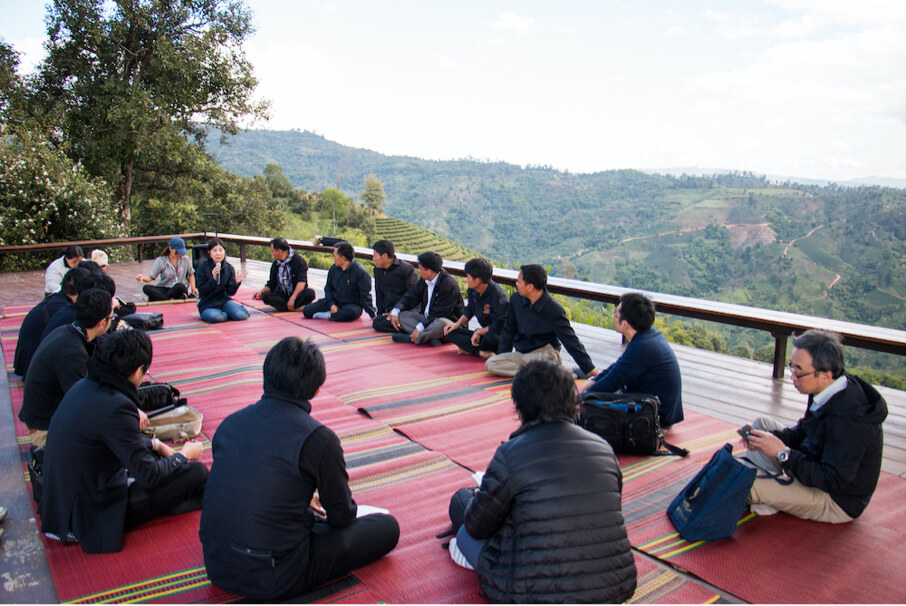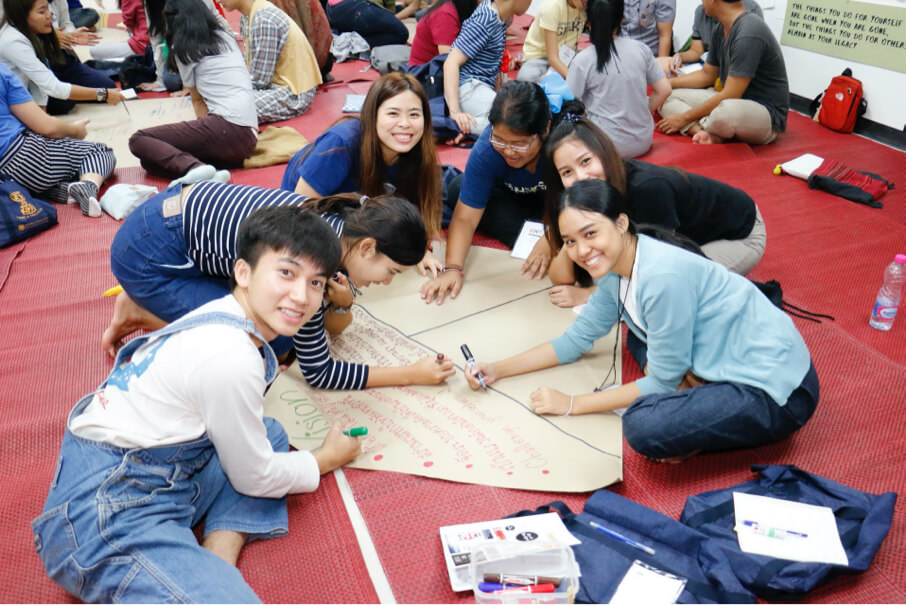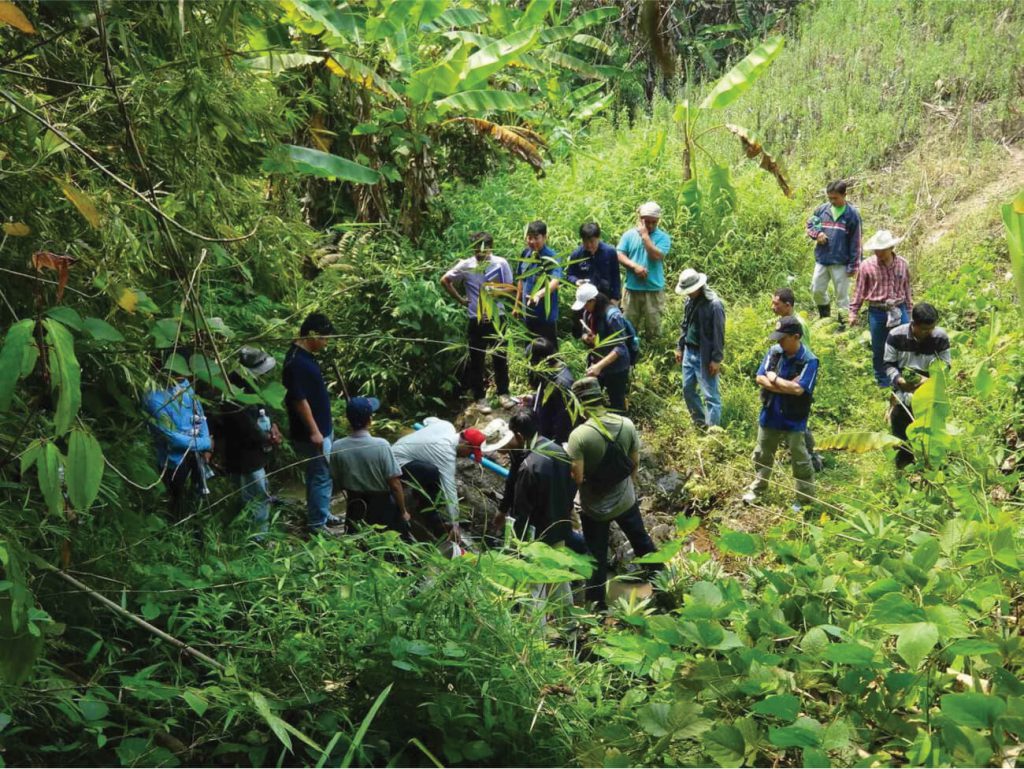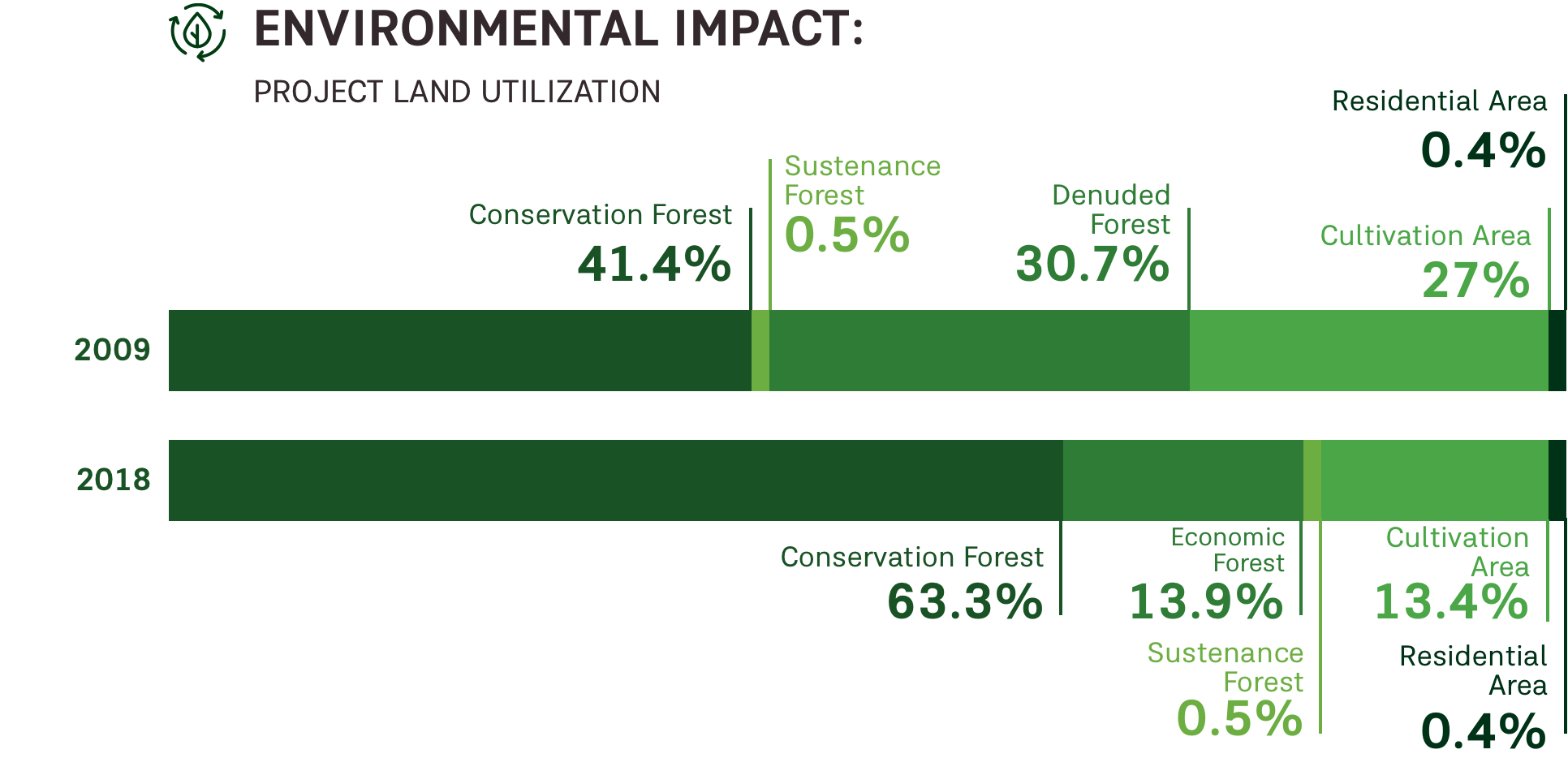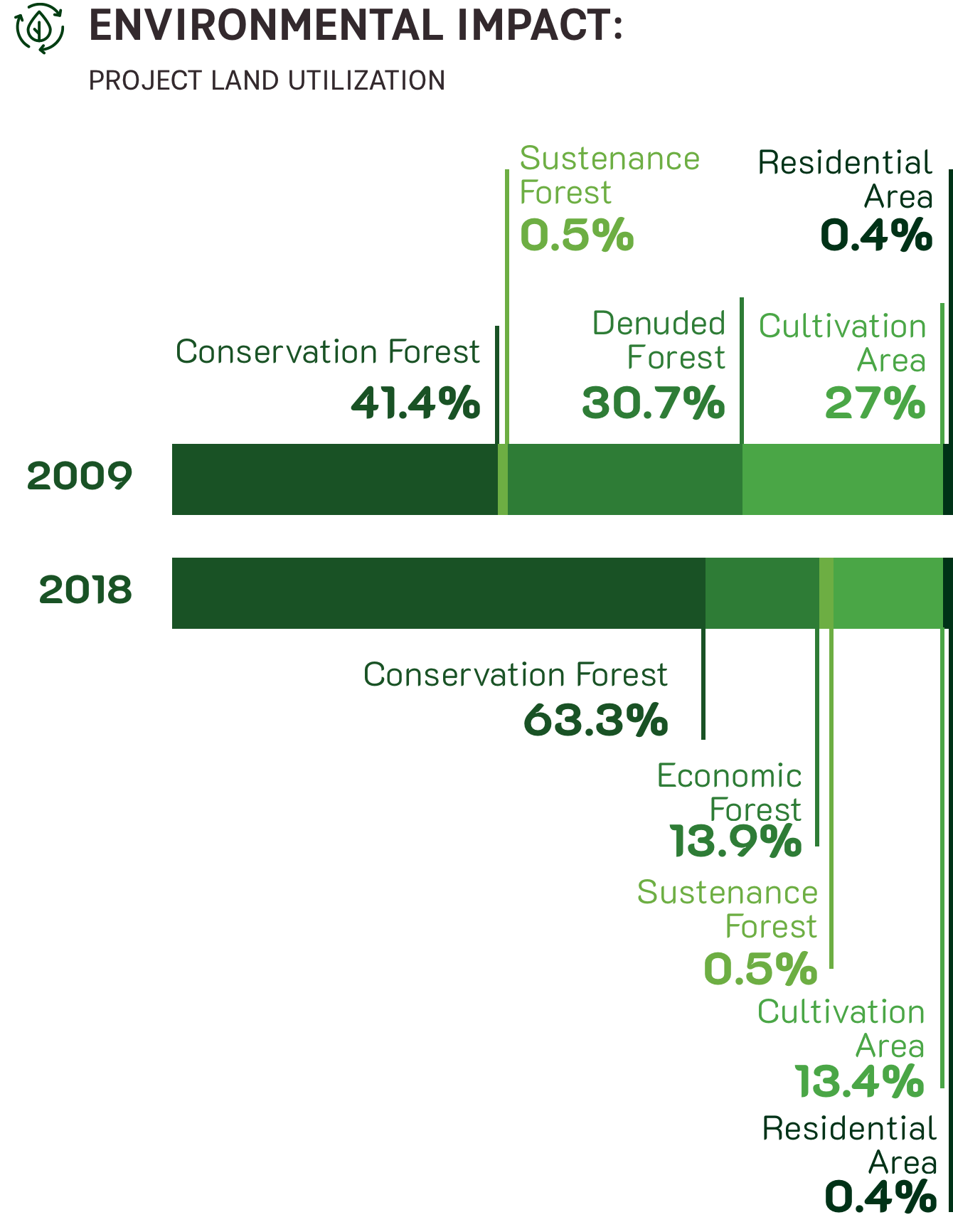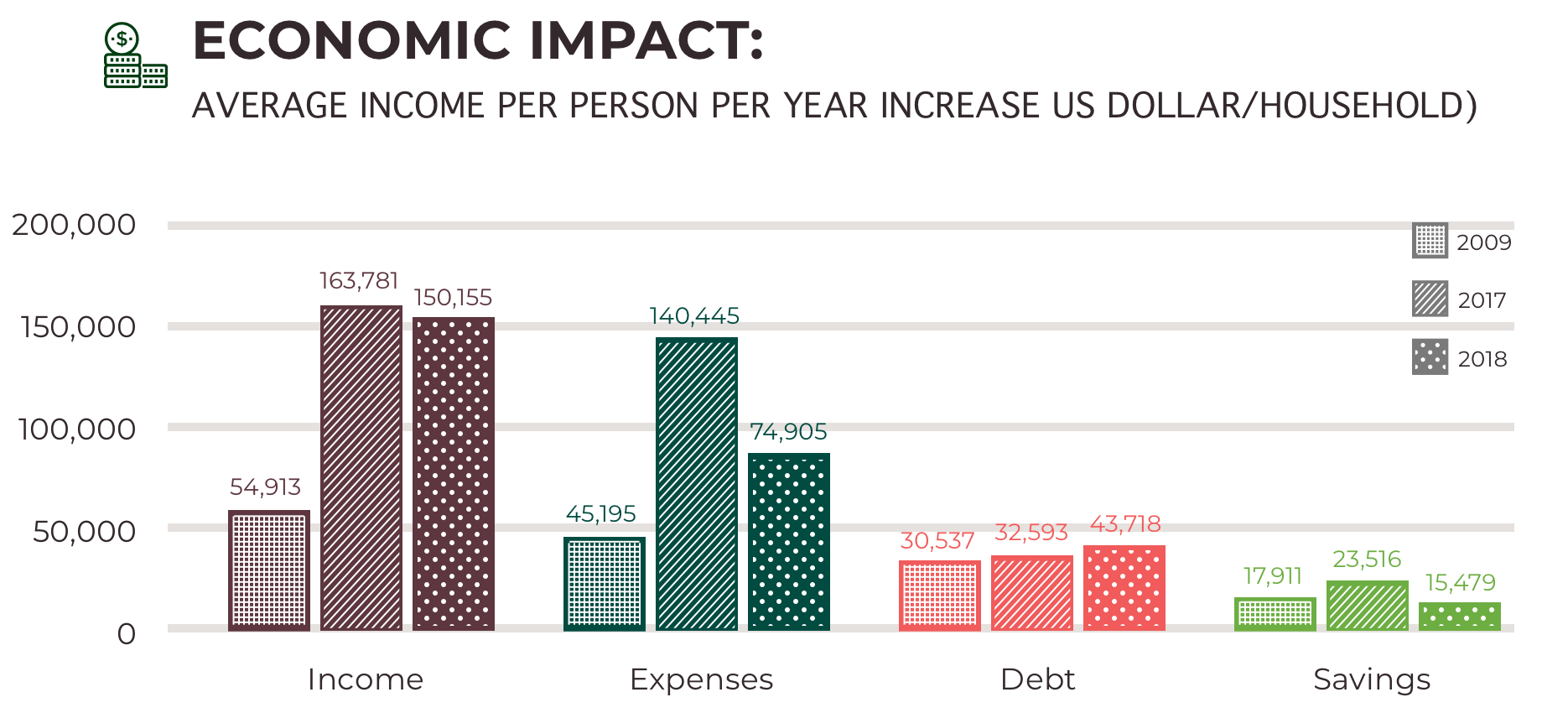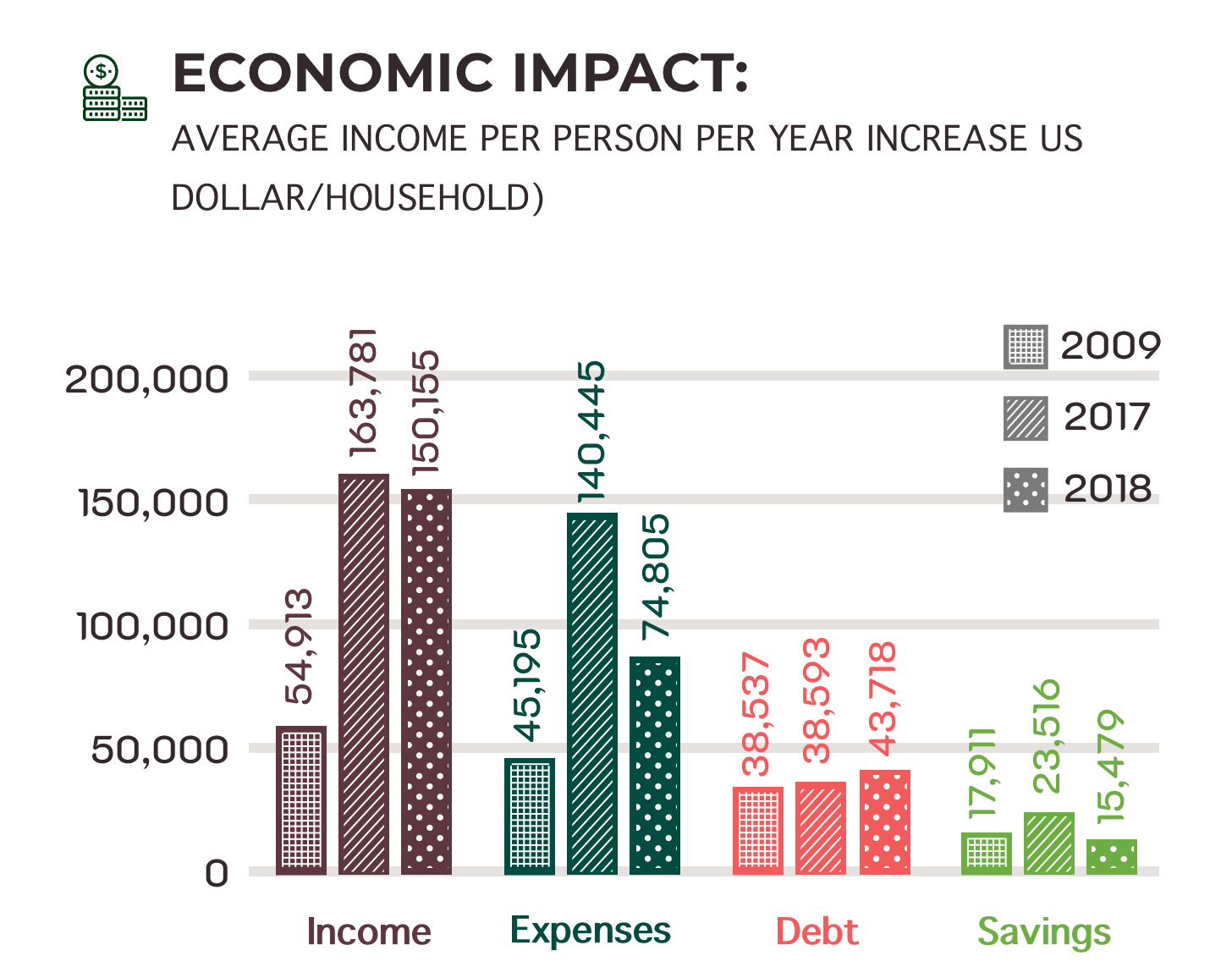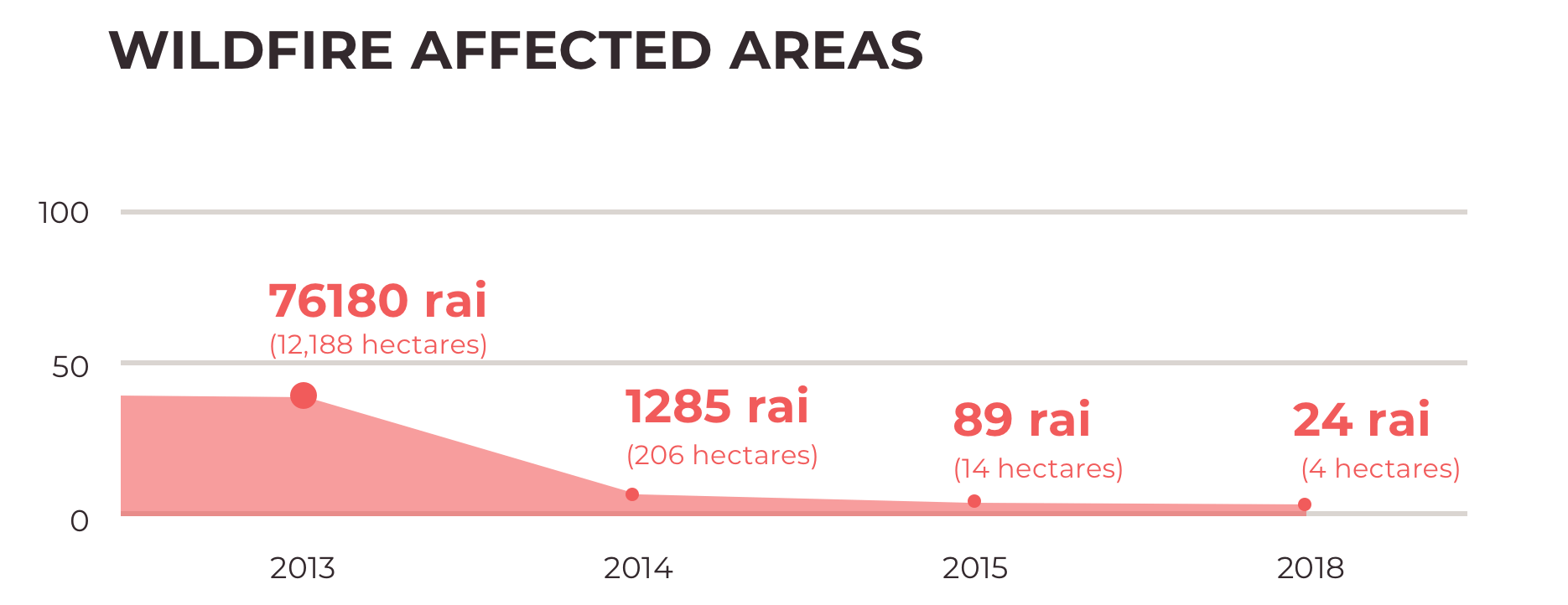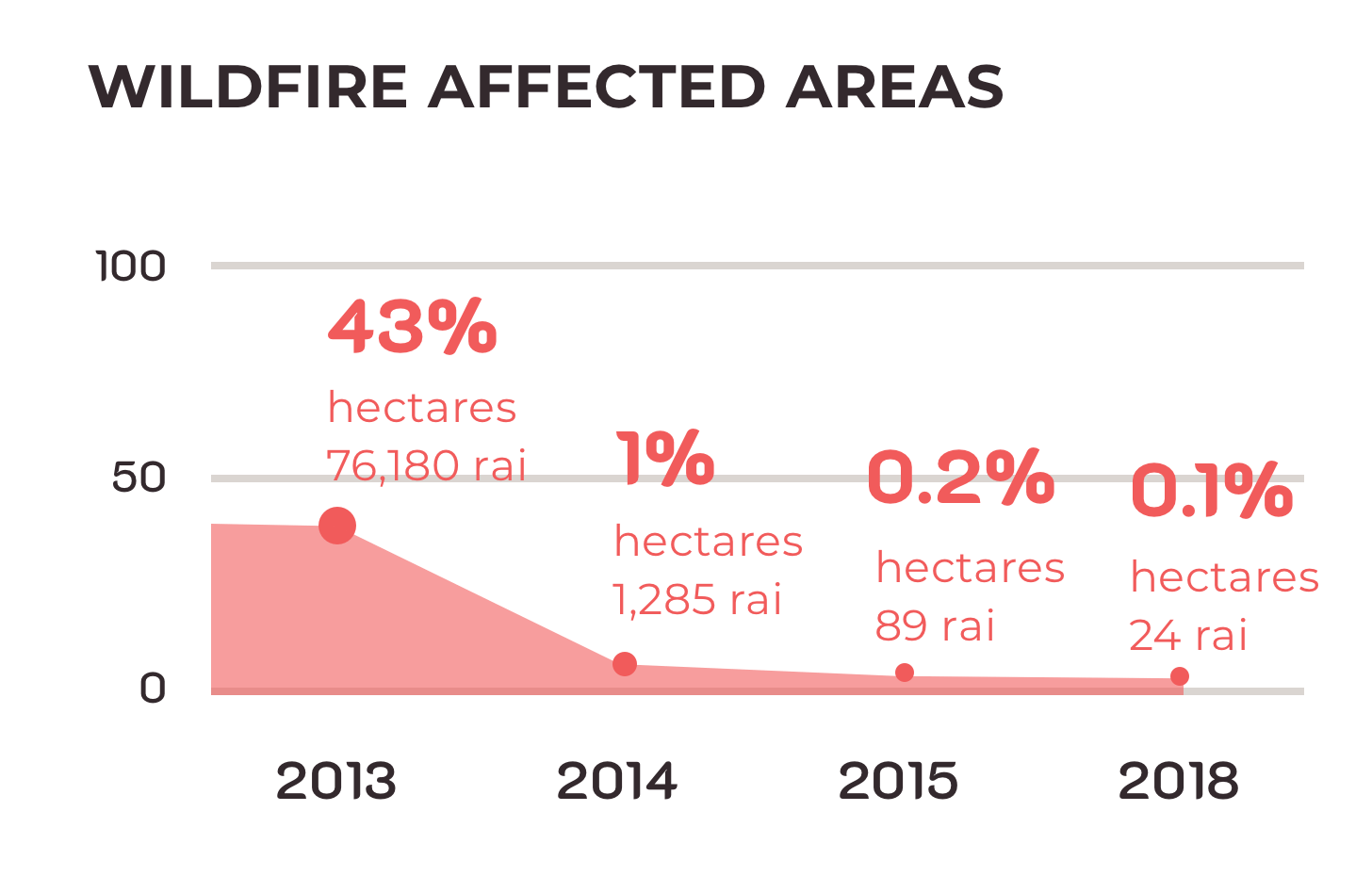MFLF has been conducting child and youth development through extracurricular activities since 2012.
MFLF organized the Faidee Kid’s Camp in 2013, planting the seeds of the Princess Mother’s vision and principles in the hearts of the children from the city to instill an awareness of the importance of the natural environment, and create a bond between nature and city children that their urban lifestyle could not offer them. Next was to expand into creating a child and youth development network in Chiang Rai Province and nearby areas aimed at drug prevention. The Hall of Opium Faidee Kids Camp Against Drugs targeted youth between the ages of 9-18.
Meanwhile, another workshop is held to cater to the needs of those living an urban lifestyle, with activities such as how to transform small plots into vegetable gardens, how to cultivate miniature gardens in glass jars to learn about ecology. The point was to create an awareness of nature that is actually within our reach, and find joy in cultivating and nurturing plants in our own homes.
